Terrorists claim deaths of 11 Mozambican soldiers - AIM
Mozambique: Islamic attacks: marginalised youth with wide networks – Hanlon
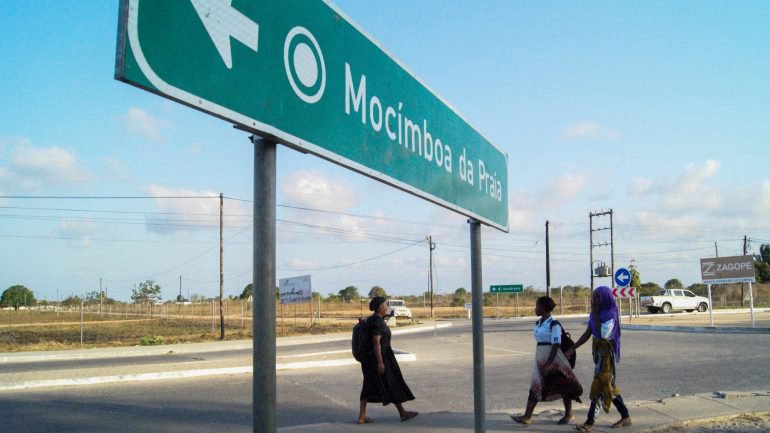
File photo
Marginalised and uneducated youth with surprising links to national and international networks – of contraband, military training, religious leaders, and financial support – are at the core of Islamic attacks around Mocimboa da Praia, according to a study presented last week.
Over more than a two decades the northeastern corner of Cabo Delgado has become a central point in three networks – legal and illegal trade and business; smuggling and export of timber, ivory and other goods; and large movements of people from Somalia and the Great Lakes region through Tanzania toward South Africa which has made the area a people smuggling centre.
The study shows how in 2015 a group of unemployed and uneducated youth objecting to poverty and social exclusion formed themselves into fundamentalist cells, in part as a way of challenging the state, and tapped into these existing networks to gain support and training.
The study is based on a month of fieldwork of Islamic cleric Sheik Saide Habibe, IESE director Salvador Forquilha, and Joao Pereira, Assistant Professor at Eduardo Mondlane University and director of MASC. IESE is the Social and Economic Research Institute and MASC is the Civil Society Support Mechanism. Preliminary results were presented on 22 May at the Universidade Pedagogica in Maputo.
The researchers found that the original group was young men with limited education and no formal employment who felt socially marginalised. Many were informal traders in markets. Sheik Habibe explained that most were from the small coastal Mwani ethnic group, who have been historically discriminated against by the dominant Maconde, and thus have supported Renamo rather than Frelimo. They were joined by other young men who had come from Tanzania and further north looking for work. Another factor was that after the 2012 killing in Kenya of Muslim cleric Aboud Rogo (accused of supporting al-Shabaab in Somalia) his followers moved south, building a presence in Kibiti, Tanzania, just north of the Mozambique border, and had crossed the Ruvuma River into Cabo Delgado by 2015.
Sheik Habibe stresses that these young men know little of the Islamic religion and the Koran, so formed only a vague programme of opposing any contact with the state, including state schools, and with established mosques. They also wanted to control women’s clothing. They did see it as a way of challenging authority and of promoting a new social and political order, as well as becoming members of a new family that gave them social value.
Joâo Pereira explained that they formed into very loosely linked cells or groups of 10 to 20 men; estimates of total numbers range form 350 to 1500. Local people called them al-Shabaab, not for the Somalia connection, but because it means youth in Arabic. They moved into illegal trade to fund themselves and their training, and appear to have earned substantial income from ivory, timber and rubies. This paid to send young men to Tanzania, Kenya and Somalia for military and Islamic training, and to bring radical clerics to Mozambique. Sheik Habibe said that in some cases, young men thought they were being sent abroad to study only to arrive and find it was military training. Within Mozambique an expelled policeman and two expelled border guards were paid to provide military training.
Pereira said that the group did not have an objective of creating an Islamic state in the north and was more aimed at creating instability and recruitment opportunities. But this has led to support from informal elites involved in illicit trade because it creates more space for their business, he said.
The first attack was the occupation of Mocimboa da Praia on 5 October 2017, and the most recent on the coastal village of Ilala in Macomia district on 16 May and on a bus going to Mocimboa da Praia on 20 May.
A detailed Powerpoint presentation of the research is on http://bit.ly/2kkI4Rr and a good detailed article was in @Verdade (23 May) on http://bit.ly/2J7P3v3. (Other reports: AIM En 22 May, O Pais 23 May)
By Joseph Hanlon
ALSO READ: Mozambique: Islamists funded by illegal trade in timber and rubies – AIM report
Groups with terrorist links in Mozambique protect illegal trade routes to the north – study


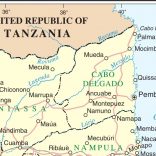

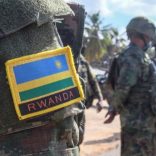
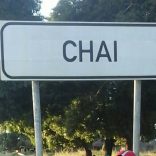
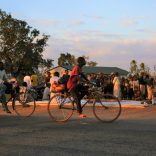




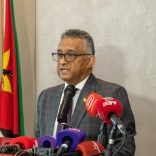

Leave a Reply
Be the First to Comment!
You must be logged in to post a comment.
You must be logged in to post a comment.